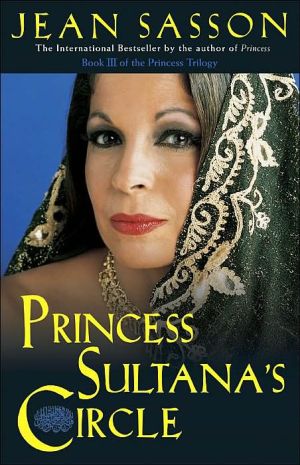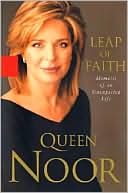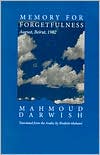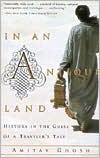King Hussein of Jordan: A Political Life
In this fascinating biography Nigel Ashton tells the story of King Hussein of Jordan (reigned 1953-99), who survived would-be coups, assassination attempts and constant regional instability to become one of the world's most loved and respected-statesmen. Writing-with unprecedented access to Hussein's private papers, Ashton brings to life Hussein's complex relationships with fellow leaders from Yasser Arafat to Ronald Reagan-and his many years of covert dialogue with Israeli politicians,...
Search in google:
A towering figure in the history of Jordan, King Hussein reigned for nearly half a century, from his grandfather’s assassination in 1953 to his own death in 1999. In this fascinating biography, Nigel Ashton recounts the eventful life of the king who not only survived but flourished amidst crisis after crisis as ruler of a poor desert nation surrounded by powerful and hostile neighbors. Hussein skillfully navigated complicated relationships with the British, his fellow Arab leaders, the new bordering state of Israel, masses of dispossessed Palestinians within his kingdom, every U.S. president from Eisenhower to Clinton, and every British prime minister from Churchill to Blair. This book illuminates the private man, his key relationships, and his achievements and disappointments as a central player in the tough world of Middle Eastern politics.Ashton has had unique access to King Hussein’s private papers, including his secret correspondence with U.S., British, and Israeli leaders, and he has also conducted numerous interviews with members of Hussein’s circle and immediate family. The resulting book brings new depth to our understanding of the popular and canny king while also providing new information about the wars of 1967 and 1973, President Reagan’s role in the Iran-Contra affair, the evolution of the Middle East peace process, and much more. Publishers Weekly In this respectful and measured scholarly evaluation, Ashton (Kennedy, Macmillan and the Cold War) builds on unprecedented access to the late king's entire correspondence and more than two dozen interviews to lend valuable insight into how Hussein's shrewdness and empathy kept him politically (and literally) alive as well as casting light on many a foreign policy enigma-notably a confirmation that Ronald Regan personally authorized what became the Iran-Contra scandal. While Hussein's uneasy alliance with the socialist brand of Arab nationalism under Egypt's Nasser led him into "the greatest calamity of his reign," the 1967 Six-Day War with Israel, he remained "ever alert to the shifting power dynamics of the Arab world," often maintaining a precarious balance between the Western powers, the Arab states and Israelwhile wielding influence disproportionate to Jordan's relatively modest assets. Ashton reveals Hussein's longstanding covert contact with Israel and his clandestine communications with Israelis in the immediate aftermath of the 1967 warto suggest the possibilities and missed opportunities (including by the U.S.) for a peaceful settlement in the Palestinian-Israeli conflict-just one reason this book feels so timely and relevant. (Sept.)Copyright © Reed Business Information, a division of Reed Elsevier Inc. All rights reserved.
Acknowledgements ixList of Illustrations xiiIntroduction: A Contested Destiny 1Chapter 1 The Tragedy of King Talal 13Chapter 2 Breaking the British Connection, 1953-6 37Chapter 3 To Hold a Throne, 1956-7 54Chapter 4 A Dynasty under Threat, 1957-61 68Chapter 5 Arab Cold War and Détente, 1962-6 89Chapter 6 The Path to Disaster, 1966-7 105Chapter 7 Lost in a Sandstorm: Hussein and the Peace Process, 1967-8 121Chapter 8 'Seven Questions of Israel': The September 1970 Crisis 136Chapter 9 The October War 158Chapter 10 Disengagement and Disillusionment, 1973-7 179Chapter 11 The Camp David Disaster, 1977-9 193Chapter 12 The Iran-Iraq War, 1980-88 210Chapter 13 Fishing in the Dead Sea: King Hussein and the Peace Process, 1980-89 230Chapter 14 Between Iraq and a Hard Place: King Hussein and the Gulf Crisis, 1990-91 258Chapter 15 From Madrid to Oslo: King Hussein and the Peace Process, 1991-3 284Chapter 16 The Best of Enemies, the Best of Friends: Hussein, Rabin and the Jordanian-Israeli Peace Treaty 300Chapter 17 The Bitter Aftertaste of Peace 317Chapter 18 The Liberation of Iraq, 1995-7 336Chapter 19 A Destiny Fulfilled? 348Select Bibliography 371Notes 379Index 421
\ New York Times Book ReviewExcellent. . . . Ashton is very interesting on Hussein's relations with Iraq and the wider Arab world.—Patrick Cockburn, New York Times Book Review\ — Patrick Cockburn\ \ \ \ \ \ Chicago Jewish StarAshton offers a great deal of material to flesh out Hussein's relations with world leaders, the Arab world and Israel, over more than 40 years. It's an elegantly written, engaging narrative. . . . His biography is a valuable contribution to understanding the background of the modern Middle East.—Gila Wertheimer, Chicago Jewish Star\ — Gila Wertheimer\ \ \ \ New York Review of BooksA very lucid and careful work. . . . Ashton's crucial contribution—besides his innate fairness—is the sudden and unfettered access he gained to the hitherto closed Royal Hashemite Archives.—Colin Thubron, New York Review of Books\ — Colin Thubron\ \ \ \ \ \ Middle East Journal"Ashton provides a respectful and highly credible political biography." —Middle East Journal\ \ \ \ \ Middle East InternationalAshton has provided Middle East watchers with a valuable quarry of material and insights into the life of a ruler who was dealt a weak political hand yet played it with remarkable skill. — Alan Munro, Middle East International \ — Alan Munro\ \ \ \ \ \ New York Times Book Review"Excellent. . . . Ashton is very interesting on Hussein's relations with Iraq and the wider Arab world."—Patrick Cockburn, New York Times Book Review\ \ \ \ \ Chicago Jewish Star"Ashton offers a great deal of material to flesh out Hussein's relations with world leaders, the Arab world and Israel, over more than 40 years. It's an elegantly written, engaging narrative. . . . His biography is a valuable contribution to understanding the background of the modern Middle East."—Gila Wertheimer, Chicago Jewish Star\ \ \ \ \ New York Review of Books"A very lucid and careful work. . . . Ashton's crucial contribution—besides his innate fairness—is the sudden and unfettered access he gained to the hitherto closed Royal Hashemite Archives."—Colin Thubron, New York Review of Books\ \ \ \ \ Middle East International'Ashton has provided Middle East watchers with a valuable quarry of material and insights into the life of a ruler who was dealt a weak political hand yet played it with remarkable skill.' — Alan Munro, Middle East International\ \ \ \ \ Publishers WeeklyIn this respectful and measured scholarly evaluation, Ashton (Kennedy, Macmillan and the Cold War) builds on unprecedented access to the late king's entire correspondence and more than two dozen interviews to lend valuable insight into how Hussein's shrewdness and empathy kept him politically (and literally) alive as well as casting light on many a foreign policy enigma-notably a confirmation that Ronald Regan personally authorized what became the Iran-Contra scandal. While Hussein's uneasy alliance with the socialist brand of Arab nationalism under Egypt's Nasser led him into "the greatest calamity of his reign," the 1967 Six-Day War with Israel, he remained "ever alert to the shifting power dynamics of the Arab world," often maintaining a precarious balance between the Western powers, the Arab states and Israelwhile wielding influence disproportionate to Jordan's relatively modest assets. Ashton reveals Hussein's longstanding covert contact with Israel and his clandestine communications with Israelis in the immediate aftermath of the 1967 warto suggest the possibilities and missed opportunities (including by the U.S.) for a peaceful settlement in the Palestinian-Israeli conflict-just one reason this book feels so timely and relevant. (Sept.)\ Copyright © Reed Business Information, a division of Reed Elsevier Inc. All rights reserved.\ \ \ \ \ Kirkus ReviewsA close analysis of the late Jordanian ruler, who walked a fine line in his efforts to promote peace in the Middle East. Ashton (International History/London School of Economics and Political Science; Kennedy, Macmillan and the Cold War: The Irony of Interdependence, 2002) writes from a scholarly point of view, complementing but not overshadowing Avi Shlaim's journalistic-and far more fluent-biography Lion of Jordan (2008). Indeed, both authors cover much of the same ground, though Ashton is less eager than Shlaim to blame the failure of peacemaking on Israeli intransigence. Instead, Ashton points to the endless complexity of regional politics, particularly in the quicksand of the Cold War, when Iraq, for instance, was alternately allied with Egypt, then Egypt's rival, then Saudi Arabia's friend, then Saudi Arabia's mortal enemy. King Hussein faced considerable opposition from his Hashemite cousins in Saudi Arabia (it did not help matters, in that regard, that the ruling Arab families of the region are related), some of whom argued that "the Jordanian branch of the Hashemite family was not fit to rule, and that the kingdom should have reverted to the Iraqi branch." In the years following the 1967 War, King Hussein made Jordan something of a buffer state between Saudi Arabia and Israel, requiring delicate negotiations and courting plenty of opposition, including several attempted military coups. By Ashton's account, though, some of his toughest opposition came from the American intelligence community, which had its own ideas about how to settle differences in the region. Compared to CIA Director Richard Helms, Israeli leader Moshe Dayan seemed an angel of reconciliation. It took sustainedeffort on the king's part to steer Jordan out of the gunsights when "his two former friends, Saddam Hussein and George Bush," went to war in 1991-an episode in which, Ashton reveals, Mikhail Gorbachev offered the Soviet Union as a back channel ally to the United States and Israel, which will come as news to many readers. Somewhat arid, but a policy wonk's dream, full of historical data and the implications for war and peace in the world's most volatile region.\ \








